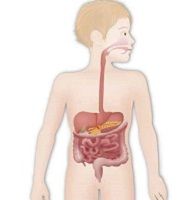Article
Kids' C. difficile Infections May Go Undiagnosed
Author(s):
Newer tests for Clostridium difficile can detect the infection in pediatric patients even when there is no blood in the stool.

Newer tests for Clostridium difficile can detect the infection in pediatric patients even when there is no blood in the stool, a Detroit, MI team found.
Reporting in an abstract presented at the Digestive Disease Week 2015 conference in Washington, DC, Dhiren Patel, MD, and colleagues at Children’s Hospital of Michigan/ Wayne State University in Detroit analyzed demographic and clinical features in inflammatory bowel disease (IBD) in pediatric patients.
Polymerase chain reaction (PCR) testing for this infection has replaced the toxin assay due to the higher accuracy of the PCR test, the team noted.
The team identified retrospectively those IBD patients with the infection based on a positive PCR test.
Of 70 patients who had both the infection and IBD 61% had Crohn’s disease, 39% had ulcerative colitis.
The main presentation of C. difficile infection was abdominal cramping and diarrhea, with or with gross bleeding. A higher percentage of the infection in CD patients (65%) did not have gross bleeding, but 41% of patients ulcerative colitis did.
They also saw that 21 patients were receiving biologic treatment (15 of those with Crohn’s and 6 with ulcerative colitis).
In the Crohn’s patients, 14 were getting infliximab and 1 was on adalimumab.
A majority of patients received metronidazole. A favorable response to initial treatment occurred in 83% of patients.
The analysis showed that “In pediatric IBD patients, absence of blood in stool does not rule out C. difficile infection. The team also concluded that “Crohn’s patients on infliximab had a significantly higher proportion of C. difficile” and that a majority of patients responded to metronidazole. They urged future studies to determine if using infliximab over other biologics is associated with increased risk of infection in pediatric patients with IBD.




